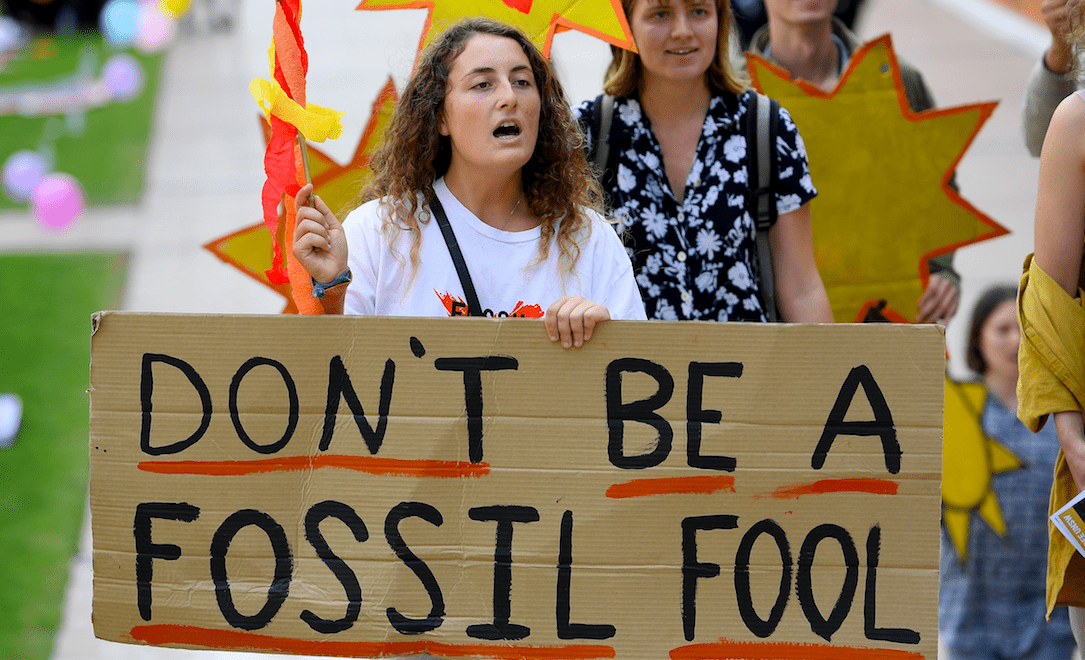Angry students have accused Kingston University of being “hypocritical” after it emerged it received over £82,000 in research funding from fossil fuel companies last year.
The university received £82,258 from August 2017 to July 2018 from fossil fuel companies according to a freedom of information request (FOI), with almost two thirds coming from the Petroleum Technology Development Fund (PTDF), an establishment that trains Nigerians to work in the petroleum sector.
Papatya O’Reilly, a trustee for People and Planet, which is a student-led campaigning group for social and environmental justice, said: “Receiving funding from fossil fuel companies can give universities a bad reputation and once people become aware there will be a voice about it.
“Generally, students are completely against it, so as soon as they find out there will be shock and anger. Most students and young people nowadays are much more aware of climate change and all the funding for degrees should reflect this.”
O’Reilly also said she thinks it is dangerous for KU to rely on funding from these companies due to the fact there is continued pressure for organisations to switch to more renewable sources.
“Fossil fuel companies are a dying funder and there will be a time when universities can’t rely on that anymore,” she said.
According to the FOI, Kingston University receives funding from Costain Ltd, EDF Energy, Engie Regeneration Ltd, Genesis Oil and Gas Consultants Ltd, Petroleum Technology Development Fund, Statoil and Woodford Heating and Energy Ltd.
People and Planet ranked Kingston University at 79 in its sustainability league tables, labelling it as the equivalent of a 2:2 degree.
A KU art student said: “Kingston University is an institution that is meant to prepare us for the future – so to accept funding from companies that are directly endangering that future is very hypocritical.
“Fossil fuel companies purposefully invest in scientific research to try to disprove climate change and anyone accepting funding from them is complicit in that.”
Natasza Rybka, a human geography student, thinks that although it would be better if KU did not accept funding from these kinds of companies, it is not realistic.
“I don’t think it really matters whether the university accepts this money or not,” she said.
“Of course it would be better for us to stop using fossil fuel companies but it is good for the university to get extra money so they can do more research.”
However, Kingston University has not participated in the People and Planet Green League since 2016 due to concerns about its methodology.
A KU spokesperson said: “The grants referenced in the report cover a small number of postdoctoral studentships, PhD research costs, field trips and equipment. The University is no longer in receipt of funding from Statoil.
“The University’s Ethics Action Plan, implemented in July 2016, assesses all research funding against a comprehensive range of criteria, which include promoting sustainable development, the sustainable use of resources and also the use of other renewable resources wherever possible, as well as considering the appropriateness of accepting funding from new partner organisations.”
However, although KU does not invest any money in fossil fuel companies, there is no policy in plan to prevent future investments, according to People and Planet.
Fossil free campaigns co-ordinator at People and Planet, Simmone Ahiaku, said: “I think accepting research funding from fossil fuel companies is hypocritical because universities are institutions that pride themselves on being progressive and forward-thinking, yet accepting research funding from fossil fuel industries is to the direct detriment of the planet and its people.
“Furthermore, the research often funded by fossil fuel companies is often to find ways to extract it. There is a clear link between universities accepting funding from fossil fuel companies and the continued extraction of it.”
Kingston University’s largest funder, Petroleum Technology Development Fund, has also been in the headlines recently. The company was in a scandal with Nigeria’s former Vice President Atiku Abubakar, due to allegations made against him for corruption and abuse of office.

